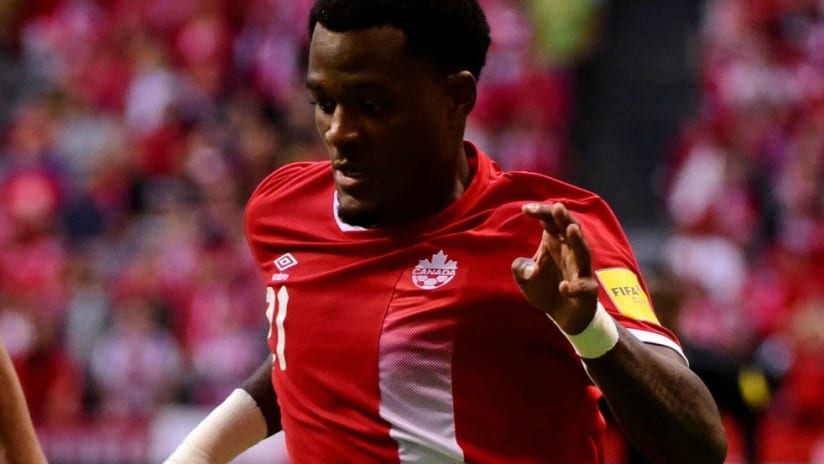The Benito Floro era is over.
For now, that’s pretty much all we know for sure.
The Canadian Soccer Association (CSA) on Wednesday confirmed that it would not be renewing Floro’s contract, one week after the men’s national team’s 2018 World Cup qualifying campaign officially came to an end.
“We would like to thank Benito Floro for his professionalism and integrity during his tenure as coach,” CSA president Victor Montagliani said on a media conference call on Wednesday. “Benito, being a professional, knows what this business is all about.”
Who will be Canada’s next full-time manager, as they work towards the 2017 CONCACAF Gold Cup?
“There’s no timetable, there’s no rush,” said Montagliani. “But we also want to be exhaustive and cast a net rather than a fishing rod, and see how we want to move forward.”
Well then, what about an interim manager, to lead the team into the friendlies it is planning to play in October and November?
“We’ll now sit down and look internally how we’re going to deal with the rest of the year,” said Montagliani. “We’ll make that announcement somewhere down the road here, before the next fixtures.”
As far as in-house options go for the interim position, one candidate is Michael Findlay, who served as an assistant under Floro and managed the team to a 1-1 draw with Ghana in October 2014. Another one is CSA technical director Tony Fonseca, who took the reins for a pair of friendlies in March 2013 before Floro was hired.
When it comes to who will have the onerous task of trying to lead Canada to the 2022 FIFA World Cup, the array of options should be much wider. But, as the team’s recent experiences in World Cup qualifying demonstrate, there is no surefire recipe for success.
Holger Osieck came in with a high profile and international experience, but could not take Canada to the Hexagonal round of CONCACAF qualifying despite leading them to the 2000 Gold Cup crown.
Frank Yallop, a former Canadian international, made the move from managing the San Jose Earthquakes, but could not reach the Hex with the national team either.
Dale Mitchell and Stephen Hart both rose up through the coaching ranks in the Canadian system, but neither could take the Canucks to the final round of World Cup Qualifying (though Hart will be there with Trinidad & Tobago).
And of course, Floro, who has traveled the globe over a 35-year managerial career, could not get the team to the Hex.
While some are clamoring for the next full-time manager to be Canadian, Montagliani said the federation will keep an open mind in its search.
“We didn’t exclude any nationality in our last search,” he said. “And we’re not going to exclude any nationality – especially our own – with respect to the next search.”
Adding another layer to the story is Montagliani’s ascent into the upper echelons of the world's game. He was elected president of CONCACAF last May, and is a vice president of FIFA, which has undoubtedly provided many connections that could assist in finding Canada’s next manager. But by virtue of winning that CONCACAF election, Montagliani is required to step down as president of Canada Soccer by spring 2017.
Regardless, what Montagliani wants is for the next full-time coach to carry forward some of the positive elements of Floro’s three-year term with Canada, including the growth of the player pool and the ways in which the team prepares for the World Cup qualification process.
“We’ve taken a long-term approach to the program, knowing that we need to build,” he said. “This was the first block. I think Benito has brought a lot to the program from a tactical/technical perspective.
“What the program needs now is another elevation. In a lot of ways, we need to double down on this program.”
As for Floro, Montagliani said the 64-year-old Spaniard understood the situation after the team failed to reach the Hex, and that there are “no issues” there.
“That’s part of the game, it’s the nature of the business,” said Montagliani. “It’s football, and now we need to move on.”













